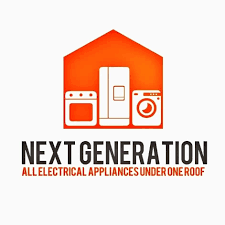Next Gen of Electronic Appliances

The world of electronic appliances is undergoing a dramatic transformation, with next-gen innovations redefining how we live, work, and interact with technology at home. From AI-powered refrigerators to voice-controlled ovens, these new appliances are built not just for convenience, but also for intelligence, sustainability, and integration with our digital lifestyles.
One of the most notable shifts is the integration of artificial intelligence and machine learning into everyday appliances. Smart washing machines now learn your laundry habits and optimize water and detergent use accordingly, while robotic vacuum cleaners map your home to clean more efficiently with each use. These systems evolve with your behavior, improving over time to provide a highly personalized experience.
Connectivity is another key feature of modern appliances. Through IoT (Internet of Things) technology, devices communicate with each other and with smartphones, enabling users to control, monitor, and automate tasks remotely. Imagine your air conditioner adjusting its settings based on your location or your coffee machine syncing with your morning alarm—this is the reality being shaped by next-gen technology.
Energy efficiency has also taken center stage. With rising awareness of environmental issues, manufacturers are focusing on reducing carbon footprints. The latest appliances consume less power, use eco-friendly refrigerants, and even generate performance reports that help users understand and manage their energy consumption better.
Design has evolved alongside functionality. Modern appliances feature sleek, minimalist aesthetics that fit into contemporary home decor seamlessly. Touchscreens, hidden handles, and voice interfaces replace bulky buttons and knobs, offering an elegant blend of style and function that appeals to today’s design-conscious consumers.
Another trend shaping the future of appliances is modularity. Some manufacturers are introducing products that can be customized or upgraded without replacing the entire unit. For instance, modular refrigerators allow users to add compartments based on changing needs—ideal for growing families or small-space living.
Security and data privacy are also being addressed more seriously in the latest models. With devices collecting data to optimize performance, built-in safeguards ensure that user information remains secure. Brands are now offering encrypted communications, automatic firmware updates, and user-controlled privacy settings as standard features.
In essence, the next generation of electronic appliances is not just about improved performance—it’s about intelligent living. These appliances anticipate needs, reduce environmental impact, and align with the fast-paced, tech-driven lives of modern consumers. As innovation continues, our homes will not only become smarter but more sustainable, secure, and seamlessly connected than ever before.
Ask ChatGPT